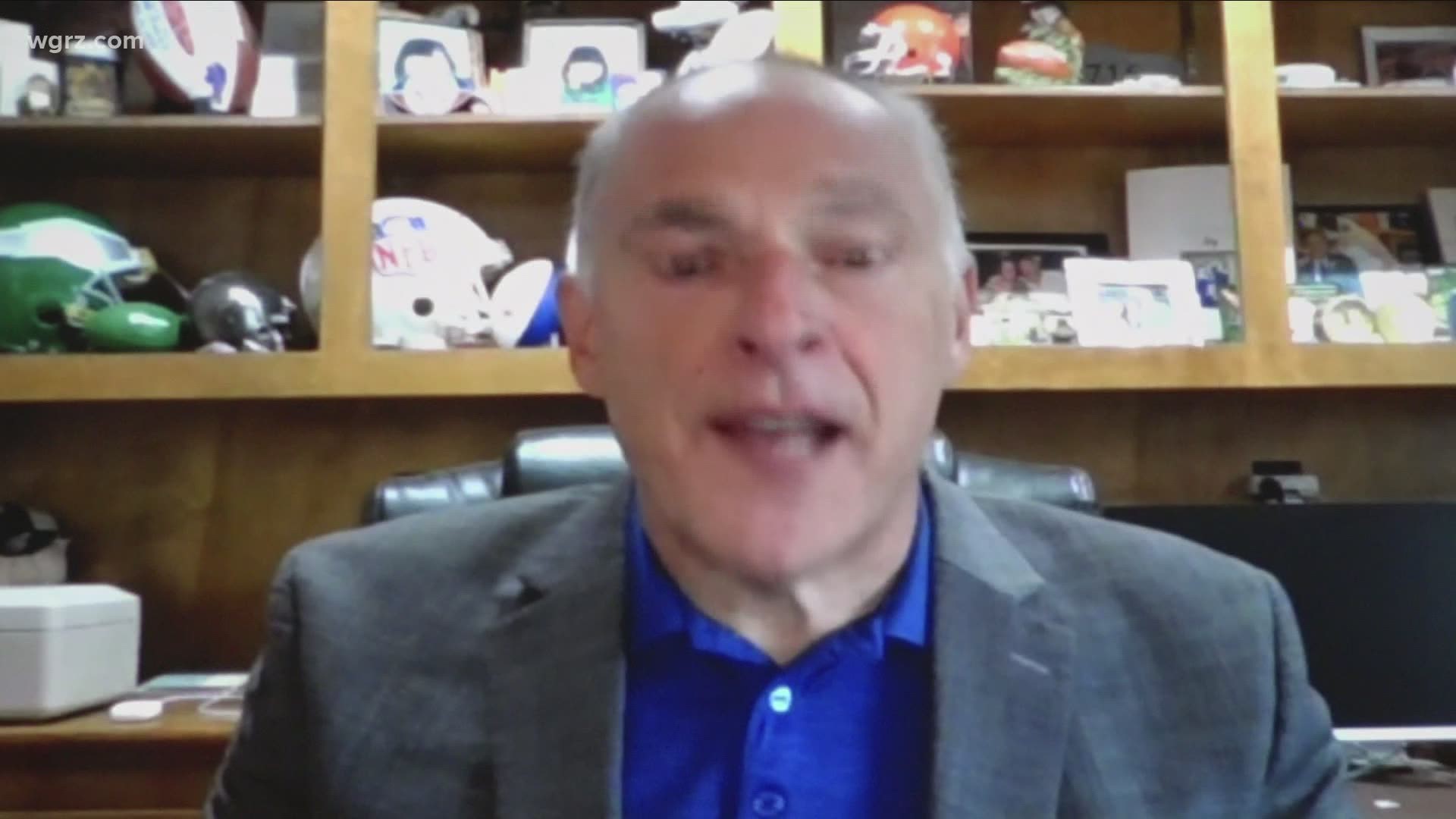ORCHARD PARK, N.Y. — Erie County Executive Mark Poloncarz has a message to private lot owners in Orchard Park ahead of this Sunday's fan-less home opener against the New York Jets.
During the county's COVID-19 press conference Wednesday, Poloncarz addressed the fact that there is a Bills game this Sunday and it will be different.
Poloncarz said that private lot operators run risk of fines, and a potential shutdown from the Department of Health, if they open up their lots to fans above crowd limits for the game on Sunday.
County lots will be closed and precautionary measures are in place to monitor the possibility of private lot tailgating, but the county did not provide details on those measures.
In August, Poloncarz said that if fans were allowed inside of the stadium, then tailgating would be allowed. But the team ruled that fans won't be in attendance for the first two home games this season.
"If NYS allows fans to attend Bills games, tailgating will be allowed, but with restrictions to protect the public. Currently NYS does not allow attendance at any pro sports event. Thus tailgating in public and private lots will depend on whether fans can attend the games," Poloncarz said in a statement on Twitter.
The Orchard Park Town Board also ruled against tailgating.
Human coronaviruses are usually spread through...
- The air by coughing or sneezing
- Close personal contact, such as touching or shaking hands
- Touching an object or surface with the virus on it, then touching your mouth, nose or eyes before washing your hands.
Help stop the spread of coronavirus
- Stay home when you are sick.
- Eat and sleep separately from your family members
- Use different utensils and dishes
- Cover your cough or sneeze with your arm, hot your hand.
- If you use a tissue, throw it in the trash.
Lower your risk
- Wash your hands often with soap and water for at least 20 seconds. If soap and water are not available, use an alcohol-based hand sanitizer.
- Avoid touching your eyes, nose, and mouth with unwashed hands.
- Avoid close contact with people who are sick.
- Clean and disinfect frequently touched objects and surfaces.
If you are 60 or over and have an underlying health condition such as cardiovascular disease, diabetes or respiratory illnesses like asthma or COPD, the World Health Organization advises you to try to avoid crowds or places where you might interact with people who are sick

